I deactivated all my social accounts in February 2018, and it is by far one of the most challenging and exciting decisions I have ever made. I have a love-hate relationship with social media networks; they are one of the best innovations of the past 20+ years and one of the most incredible time-wasters of our time. Before deciding to leave social media, I dug deep into the literature on what social media does to us through overstimulation, self-comparison and inability to focus on what matters. I was influenced by authors like Cal Newport, Jaron Lanier, Adam Atler, and Nir Eyal.
One of the reasons that a lot of us still stick around these social networks even though we know it is affecting our mental health and not letting us concentrate on our life purpose is our inability to explore and determine better alternatives. Some healthy alternatives suggested by the authors to counteract obsessive social media use include reading personal development books, going for a walk in nature, optimizing for joy, beginning a fitness journey, meditating, journaling, thinking and doing hard stuff. I am a living testimony that they are healthy alternatives to staying addicted to social networks as since I left social media, I have gotten more focused on my priorities, engaged in a fitness journey, and challenged myself more through complex tasks such as running multiple marathons yearly, 100 books reading challenge, daily meditation, and daily journaling.
DIf You Do What is Easy, Your Life Will Be Hard. But if You Do What is Hard, Your Life Will Be Easy.
As author and motivational speaker Les Brown often said, “If You Do What is Easy, Your Life Will Be Hard. But if You Do What is Hard, Your Life Will Be Easy.” Taking the path of least resistance, like going on the entrepreneurial journey is an extreme sport, and it is usually not for the faint-hearted. It requires a lot of determination, persistence, hard work, grit, and doing hard things to become great. There is a reason why most small businesses are not around by their fifth birthday; it is a tough path that requires mental toughness, stamina, endurance and resilience. Co-Founder of Linkedin Reid Hoffman often said, “Starting a company is like jumping off a cliff and assembling a plane on the way down — your willingness to jump is your most valuable asset as an entrepreneur.”
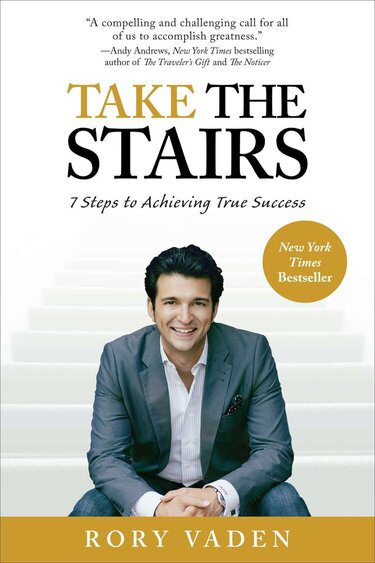
In Take the Stairs: 7 Steps to Achieving True Success 1, self-discipline strategist Rory Vaden advocates for doing hard things by using the analogy of taking the stairs instead of the escalator. Vaden observed that our culture promotes shortcuts and instant gratification which leads to short-term progress (Escalator Thinking) instead of promoting hard work and delayed gratification which leads to long-term progress. He writes:
We are conditioned to believe that it is moral to pursue immediate satisfaction and that difficulties can always be circumvented. We don’t want to make any sacrifices, and for many of us we have never had to. Instead, the vast majority of Western societies have adopted an “escalator mentality”—one that says getting what we want shouldn’t require much work, and that there are always shortcuts in business and in life.
If we take an escalator, then there is literally no physical change in our bodies once we’re at the top because all we do is stand there while a machine does all the work. However, when we Take the Stairs, a number of things happen, if only to a minor extent. We burn calories, we use (tear) our muscles and our heart rate increases as we climb. So, there are physiological changes that take place when we Take the Stairs as opposed to taking the escalator. The same is true in your life!
Success comes down to choosing the hard right over the easy wrong. Consistently.
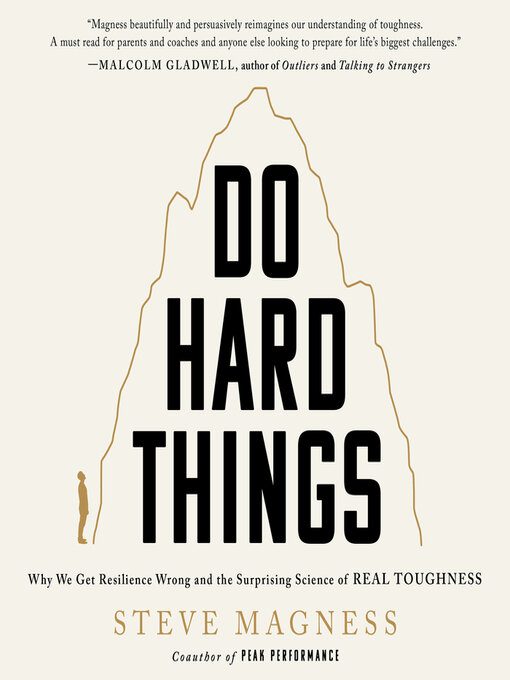
In his book, Do Hard Things: Why We Get Resilience Wrong, and the Surprising Science of Real Toughness 2, performance scientist Steve Magness argues for a reimagination of our understanding of toughness. Drawing from mindfulness, military case studies, sports psychology, neuroscience, psychology, and philosophy, Magness provides a roadmap for navigating life’s challenges and achieving high performance that makes us happier, more successful, and, ultimately, better people. He commented:
The hard thing isn’t setting a big, hairy, audacious goal. The hard thing is laying people off when you miss the big goal. The hard thing isn’t hiring great people. The hard thing is when those “great people” develop a sense of entitlement and start demanding unreasonable things. The hard thing isn’t setting up an organizational chart. The hard thing is getting people to communicate within the organization that you just designed. The hard thing isn’t dreaming big. The hard thing is waking up in the middle of the night in a cold sweat when the dream turns into a nightmare.
Real toughness is experiencing discomfort or distress, leaning in, paying attention, and creating space to take thoughtful action. It’s navigating discomfort to make the best decision you can.
TOUGHNESS MAXIM
- Real toughness is experiencing discomfort or distress, leaning in, paying attention, and creating space to take thoughtful action. It’s navigating discomfort to make the best decision you can.
- Our appraisal of a situation as a threat or as a challenge depends on the perceived demands of that stressor versus our perceived abilities to handle them. Do we have the resources to handle the demands?
Toughness is having the space to make the right choice under discomfort.
You have to embrace discomfort to live a life of comfort in the future, delay gratification for a financially secure future, sweat in war to bleed less in battle, and pain in the gym for gain in your fitness. To get the result you’ve not gotten, you must decide to do the hard things that you are scared of doing. We get rewarded in public for what we painstakingly practice in private. It is going to be a dogfight to achieve your dreams; you are going to get doubted and even doubt that you can achieve your goals, but you have to keep making the tough and hard decisions like not taking shortcuts, working hard relentlessly and executing daily. I like the way former boxing heavyweight champion of the world, Joe Frazier, puts it:
You can map out a light plan or a life plan, but when the action starts, it may not go the way you planned, and you’re down to the reflexes you developed in training. That’s where roadwork shows – the training you did in the dark of the mornin’ will show when you’re under the bright lights.
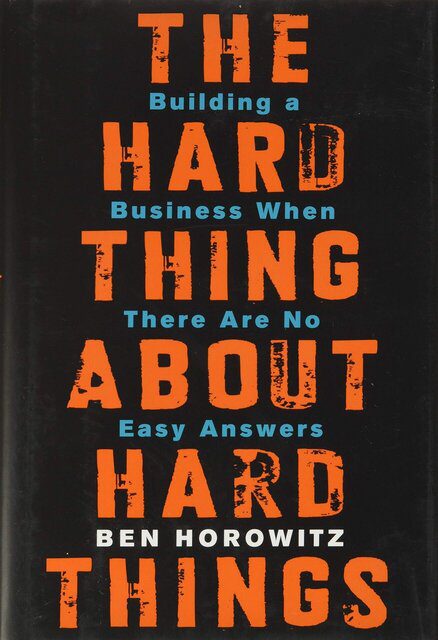
In The Hard Thing About Hard Things: Building a Business When There Are No Easy Answers 3 cofounder of Andreessen Horowitz, Ben Horowitz, writes about why hard things are hard and why making hard decisions is one of the pre-requisites of becoming successful in life and in business. He noted
The hard thing isn’t setting a big, hairy, audacious goal. The hard thing is laying people off when you miss the big goal. The hard thing isn’t hiring great people. The hard thing is when those “great people” develop a sense of entitlement and start demanding unreasonable things. The hard thing isn’t setting up an organizational chart. The hard thing is getting people to communicate within the organization that you just designed. The hard thing isn’t dreaming big. The hard thing is waking up in the middle of the night in a cold sweat when the dream turns into a nightmare.
“Hard things are hard because there are no easy answers or recipes. They are hard because your emotions are at odds with your logic. They are hard because you don’t know the answer and you cannot ask for help without showing weakness.
Every time you make the hard, correct decision you become a bit more courageous and every time you make the easy, wrong decision you become a bit more cowardly. If you are CEO, these choices will lead decision you become a bit more cowardly. If you are CEO, these choices will lead to a courageous or cowardly company.
If you run a company, you will experience overwhelming psychological pressure to be overly positive. Stand up to the pressure, face your fear, and tell it like it is.
Meditations
- Daily Calm with Tamara Levitt – Lobha
- Lobha – our world often revolves around
Podcast
- The Perks of Living Without Social Media | Cal Newport
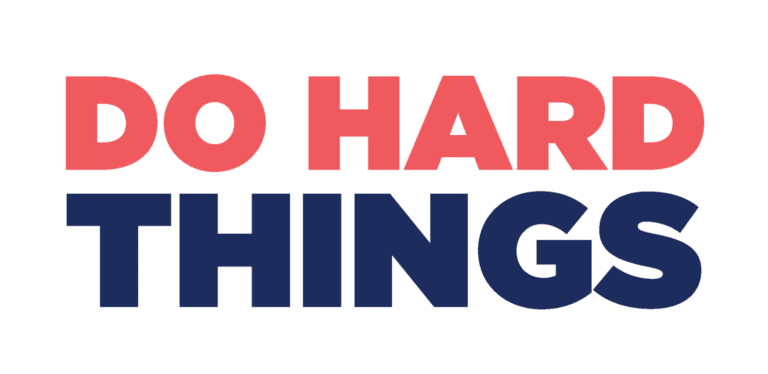

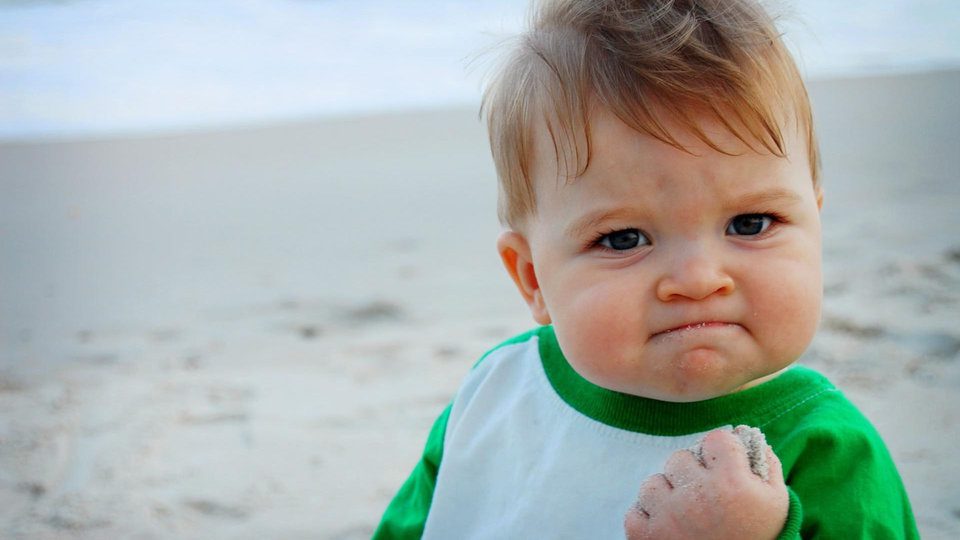
Comments are closed.